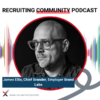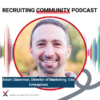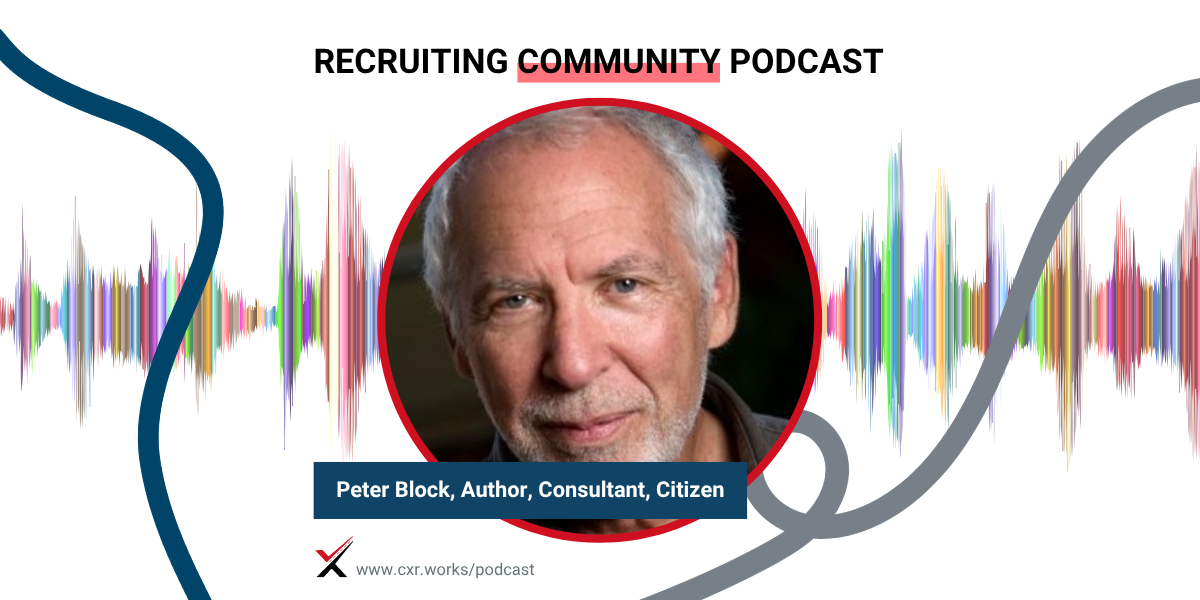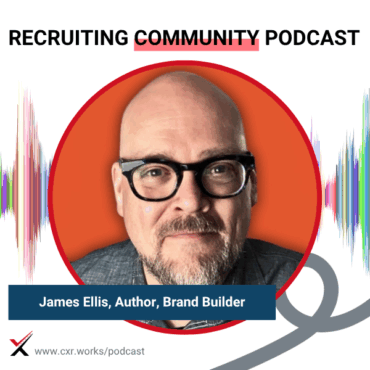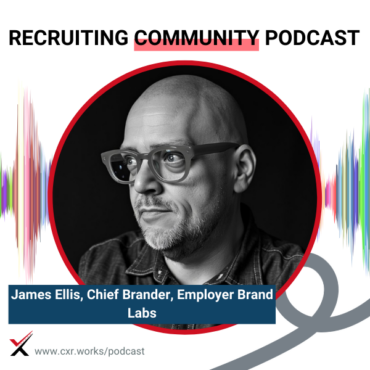Chris Hoyt: We’re the hap, hap, happiest, jolliest bunch of assholes this side of Christmas.
Peter Block: That’s what I call an opening.
Chris Hoyt: Certainly a new year for sure. For anyone who’s a Christmas Vacation fan, you’ll know that line. Peter, where are you living now?
Gerry Crispin: Yeah, where are you?
Peter Block: Cincinnati, Ohio.
Gerry Crispin: How did you choose that?
Peter Block: I fell in love with Kathy.
Gerry Crispin: Ah, that’ll do it. You’re probably not the only one with that story.
Peter Block: It’s my form of mental illness.
Chris Hoyt: Ohio, or being in love?
Peter Block: Being in love.
Chris Hoyt: There you go.
Peter Block: I grew up in the Midwest, so for me it was coming back again. I’d been on the East Coast for years.
Gerry Crispin: Are you planning to do much speaking this year?
Peter Block: Only this way. I don’t leave town anymore. I type and I talk. I like conversations—because then you don’t know what you’re thinking until you say it and someone responds.
Gerry Crispin: It’s true. I speak pro bono for people looking for jobs, and they’ll ask what I present with. I tell them, I don’t do decks anymore. I just have a conversation. I’m interested in what’s keeping them up at night. If I don’t know anything about it, it’ll be a short conversation.
Peter Block: That’s a political stance. PowerPoint means I knew three days ago what I was going to talk to you about. I’m never surprised. And the most bored person during a PowerPoint is the one making the presentation. Saying, “I want to show up and be with these people”—that’s a stance.
Chris Hoyt: Conference organizers everywhere are crossing names off their list right now.
Peter Block: People get that. The advice you give in job searching is the same: be who you are. Otherwise, what’s the point?
Gerry Crispin: Exactly.
Peter Block: I remember Marian Woodman, a feminist writer in the ’70s. She’d go to conferences and say, “I used to bring notes, but I don’t anymore.” That was powerful. She was a role model for me.
Chris Hoyt: Are we ready to start? Let’s do it.
Announcer: Welcome to the CXR channel, our premier podcast for talent acquisition and talent management. Listen in as the CXR community discusses a wide range of topics focused on attracting, engaging, and retaining the best talent. We’re glad you’re here.
Chris Hoyt: Welcome everybody to another CXR Recruiting Community Podcast. I’m Cher, and I’m going to welcome my co-host, Sonny. How are you today, Sonny?
Gerry Crispin: Great, Cher. You’re just mad you didn’t get to be Cher.
Chris Hoyt: She’s still alive though. Sonny’s not. She’s crushing it. Did you hear her holiday hit? I think she sang two lines and then they did a DJ remix. Save it for next year—highly recommend.
For those who don’t know, we’re on LinkedIn and Facebook, no longer on Twitter. You can engage with us there—it’s CareerXroads. If it’s your first time listening, subscribe and jump in. You can find all our podcast episodes at cxr.works/podcast.
Also, if you’re joining us live on LinkedIn, there’s a chat. Say hello, ask questions for us or our guest. If it’s a good question or a nice comment, we’ll add it and include you in the show.
Jerry, we’ve got an interesting guest today. You go way back with this one.
Gerry Crispin: Yeah, it takes me back to the start of my recruiting journey. After grad school, I landed a job at Johnson & Johnson. I was kind of a loose cannon, so I got to do a bunch of things. The company had an extraordinary consultant, and the bosses told us to just follow him around. That guy is Peter Block.
Chris Hoyt: Let’s bring Peter in. Peter, welcome to the show.
Peter Block: Thank you. Nice memory of those days. You were very young and I was maybe four years older.
Gerry Crispin: If it was more than four, it starts getting uncomfortable.
Peter Block: If I’d known Jay valued me that much, I would’ve raised my rates!
Chris Hoyt: For those unfamiliar with you, Peter, can you give us a little elevator pitch—who is Peter Block, and why should people listen to you?
Peter Block: I was on track to be a systems engineer at IBM, but a professor said, “There’s this field called organization development—I think you’d like it.” So I studied OD in grad school. Exxon hired me, and I did team building and T-groups.
In my 40s, a publisher encouraged me to write a book about consulting. I initially declined, but when he offered me $20,000 in royalties, I wrote Flawless Consulting. The publisher went out of business, the book sat for a year, and then it did really well.
That experience taught me that my ideas could matter without me being physically present. I kept writing. In the mid-90s, I got involved with civic leaders and shifted my focus to community engagement. My work now is about bringing organizational ideas into the civic space.
Chris Hoyt: And now you’ve got a new book out.
Gerry Crispin: Yep—Activating the Common Good. It’s fantastic. We built CareerXroads around the concept of community. For nearly 30 years, we’ve pushed cooperation and knowledge-sharing among TA professionals, in a world that often promotes secrecy and competition.
Most community research focuses on neighborhoods, not businesses. But Peter’s latest book merges business insights with civic theory. He lays out how we rethink structures to create stronger community-focused cultures, even in business.
Peter, in your view, what’s the core myth of business that stands in the way of true community?
Peter Block: Our narrative drives our actions. The dominant business perspective is built on speed, scale, cost, efficiency, competition, and individualism. If we’re waiting for institutions to change that perspective, we’ll be waiting forever.
The book says: stop waiting. Traditional activism asks someone else—management, government—to change. But real change comes when we decide the kind of culture we want to live in and act as if we have the power to create it.
Instead of being consumers of meetings or culture, we become creators. Instead of PowerPoints and rectangular tables, we sit in circles and ask, “What do you want to get out of this?” Treat people as co-creators, not recipients.
Leadership becomes about convening, not controlling. That’s how you build real accountability.
Gerry Crispin: That resonates. I remember when I was at J&J, we had the Credo on every door. You lived by those values. I made decisions that weren’t mine to make, but my bosses backed me because I acted within that credo.
Peter Block: Exactly. They meant it. Most companies say they care about community, but it’s just branding. At J&J, they tried to live it. They created a culture of trust.
What if, instead of onboarding new hires to “fit in,” we asked them what kind of culture they want to create with us?
Chris Hoyt: We’ve talked to TA leaders who struggle with retention accountability. When is turnover “recruiting’s fault”? 30 days? 90? Six months?
We ask them about realistic job previews and cultural transparency. Most of them just shrug. I feel like that ties into what you’re talking about.
Peter Block: Of course. Those leaders are looking for someone to blame. Even “onboarding” implies, “We’re the ship, you’re in the water.”
People don’t leave because of salary—they leave because they don’t feel connected. Everyone can make more money somewhere. People stay because they feel part of something.
So recruiting should build that connection from the very first interaction. Ask them what kind of culture they want to create. Treat them as partners.
Chris Hoyt: So you’re saying if we build that community-style relationship up front, recruiting can influence retention downstream.
Peter Block: Exactly. Don’t wait for management to change. You don’t need permission to treat others as partners.
Gerry Crispin: And language matters too. “Talent acquisition” implies people are objects to be acquired.
Peter Block: Yep. Maybe it’s “Talent Invitation” or “Welcoming.” Language shapes experience. All transformation is linguistic.
Gerry Crispin: It reinforces the culture—good or bad.
Peter Block: You guys are successful because you offer a human path for recruiters. You treat your members as partners.
Chris Hoyt: True. And we welcome alumni back like family. That stuff matters.
Peter Block: It’s everything. It’s how you embody your values. And if someone leaves? Don’t take it personally. They’re part of the story too.
Gerry Crispin: Peter, are you working with corporate folks these days?
Peter Block: Not as much. Most of my current work is civic-focused—helping communities reclaim control over their wellbeing. But it all started with organizations, and it all connects.
People want connection, whether they’re in neighborhoods or corporations. Offsites, retreats—they’re all symptoms of our need to gather differently.
Chris Hoyt: What about retreats? Do they help?
Peter Block: Sure, but why not do that on-site? Why does meaningful conversation have to be off-campus? Why not have gatherings where we do real work and connect at the same time?
Gerry Crispin: We do that. CXR holds on-site meetings at member HQs. It’s immersive, and it fosters powerful conversations.
Peter Block: Beautiful. You’re not retreating—you’re leaning in. You’re saying, “Let’s create something real, right here.”
Chris Hoyt: Peter, this has been incredible. Thank you so much. For those listening, the book is Activating the Common Good. You can grab it at powells.com.
Peter Block: Thank you. And thank you both for what you’re doing in the world.
Gerry Crispin: Appreciate it. It’s been great to reconnect after all these years.
Chris Hoyt: Thanks again, Peter. And thanks to everyone listening. We’ll see you next time.
Announcer: Thanks for listening to the CXR channel. Please subscribe to CXR on your favorite podcast resource and leave us a review while you’re at it. Learn more at cxr.works, facebook.com/careercrossroads, and on Instagram at CareerXroads. We’ll catch you next time.


